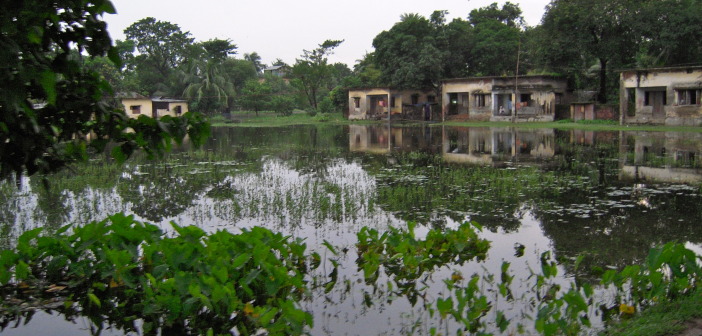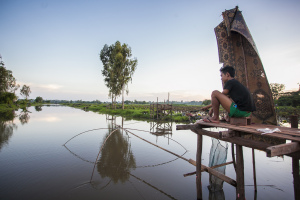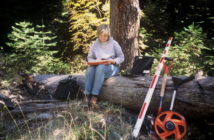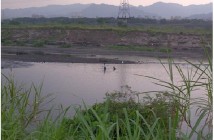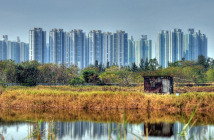Missaka Hettiarachchi
?Urban wetlands have become sites where the interests of the economy and ecology, of authoritarianism and democratic participation, of global forces and local communities meet and clash? Indian wetlands researcher, Shrestha Bannerjee, on East Kolkata Wetlands, 2009.
Wetlands were often frowned upon as ?abominable wastelands? by city planners in the early days of modernist development. The physical traits of wetland terrain and their complex ecologies frustrated the logical modernist mind. As cities grew, the urban poor and socially less?desirable were pushed into living in the fringes of these seemingly useless lands, while the relentless quest to conquer and engineer wetlands continued with ambitious drainage and reclamation schemes. In the past three decades, the growth and globalization of urban real?estate markets and the advancements in the construction technology have combined into a renewed drive to convert urban wetlands into real estate, openly confronting wetland ecology and wetland communities. However, times have changed.
Today?s urban wetlands are transformed hybrid ecosystems which are ecologically far less stable than the marshes and swamps that cities took?over centuries ago. Much larger urban populations are dependent on them for ecosystem services (flood protection, water supply, fish stock, recreation). The simple peasant communities of the old days have entered the urban working class and the authority of engineers and town planners of early modernist rational city planning is now over shadowed by the financial speculator. Especially in the developing world, cities have become more spatially segregated, both in class and ethnicity. The modern city and its nature have become a more complex place than the great modernist thinkers ever envisioned. The attempts to takeover urban wetlands now spark much more potent reactions from both nature and society.
One can only speculate how these differences between ecology and economy, the capital and the marginalized and the state and the subjects will be resolved. Can ?liberal democratic? approaches ? participation, consultation etc. ? be useful in resolving these differences? To what extent can we use the technical breakthroughs in wetland science and management to mitigate the losses and reconcile the parties? Who, then, will be answerable to nature? Can urban planning account for the sustainability of the wetlands and the well being of the communities or should we rely on the civic struggles that are emerging around the urban wetlands globally to create a new form of ecological democracy that will shape our cities in the next few decades?
Dr. Missaka Hettiarachchi is a researcher in urban environmental governance and disaster risk management. He's a co-editor of Urban Wetlands.
